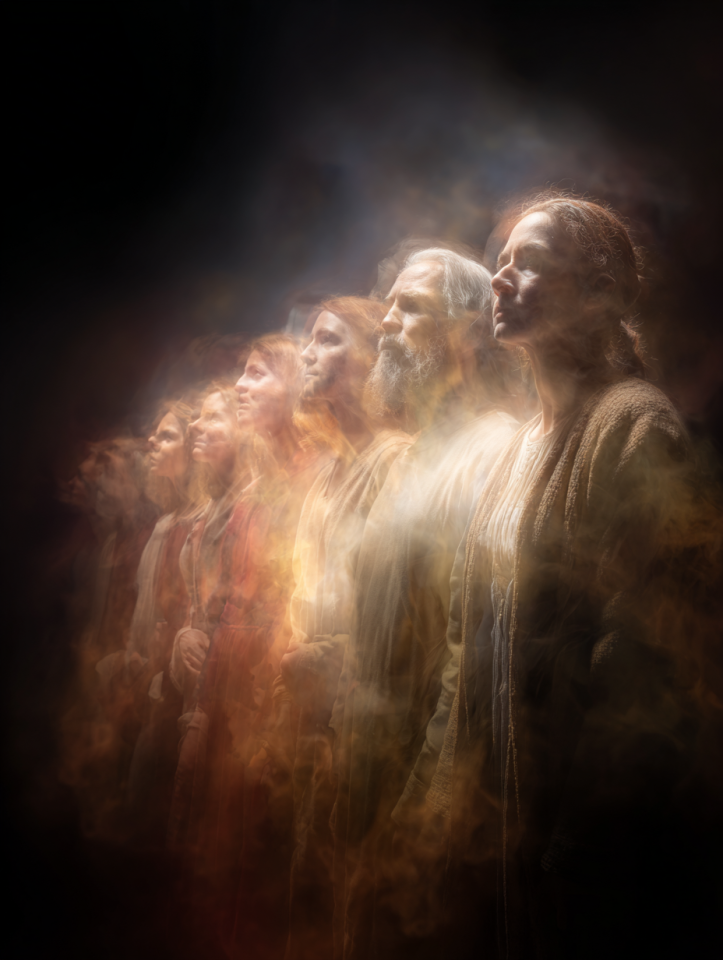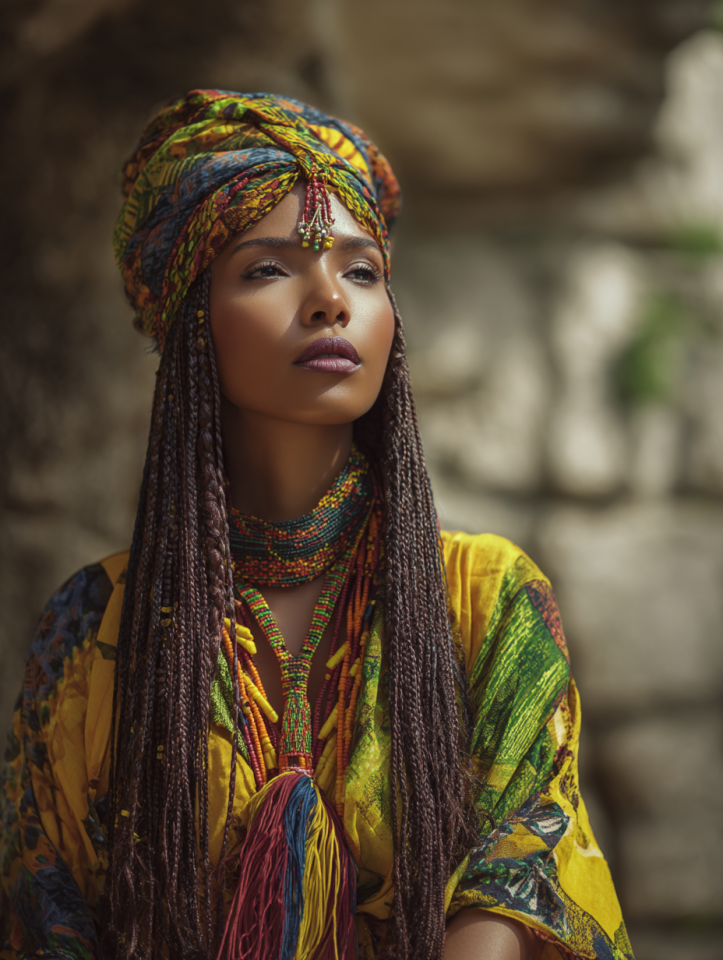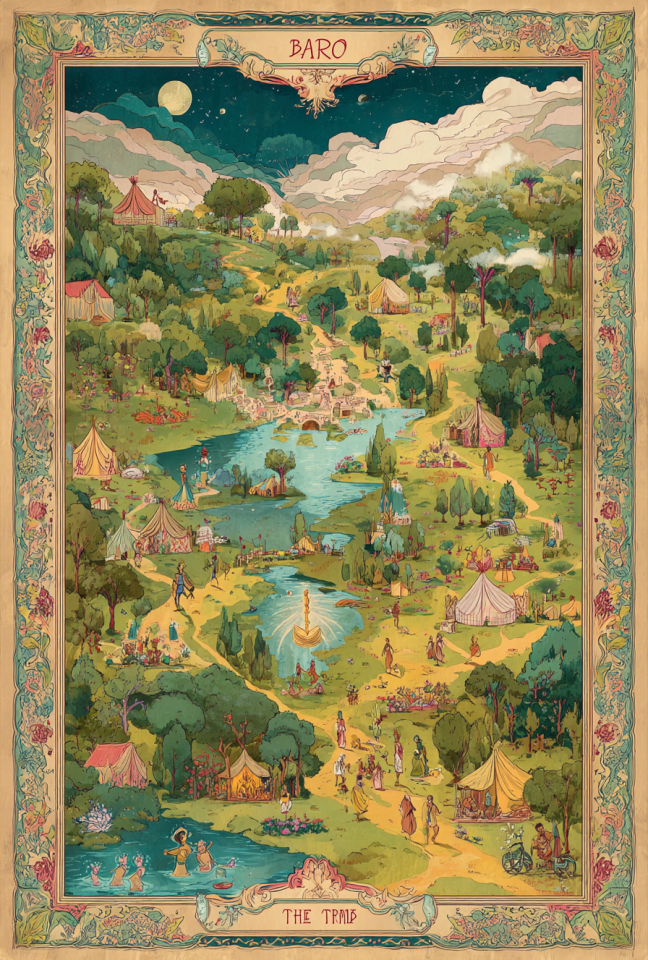Baro Them, “The Great Land,” is the roaming heart of divine freedom a realm not rooted in geography but carried by rhythm, flame, and fate. Governed by Bababiljos the bright-eyed keeper of the eternal road, Baro Them is a Divine Realm of journeying souls of celebration in the face of sorrow, and of motion as sacred expression. It is neither heaven nor sanctuary — it is home on the move built not from walls but from songs, stories, and wheels turning under moonlight. In the Divine Realm, Baro Them exists at the edge of all others, skirting their borders like a caravan of stars, never beholden, always welcome — for a night.
Landscape and Essence
Baro Them appears as a shifting landscape of flowering meadows, river crossings, poppy fields, and winding paths that never repeat. Every evening, a new camp blooms: tents of silk and woven tapestry lanterns burning saffron light, cooking fires that never smoke. The night sky here feels closer, pierced with songs of the living and the dead. The land is warm under bare feet, and distant laughter curls through the air like incense. Time in Baro Them flows like a tambourine’s rhythm — circling, building, surprising. The realm’s very nature reshapes itself to the needs of the moment — sometimes it’s a forest, sometimes a ruined city reclaimed by joy, sometimes a plain full of horses and dancers. But always, it moves. Always, it lives.
Inhabitants
At the center of Baro Them is Bababiljos a deity of many faces and flowing garments — sometimes man, sometimes woman, sometimes both or neither — with fire in their hair and road-dust on their skin. They embody the protector, the trickster, the ancestor, the lover. Their presence is magnetic, inviting, and layered with old power. Around them gather spirits of the departed — ancestors who wander in peace guiding and watching — and living flame spirits musicians animal guardians and weather-beings who respond to song, laughter, and grief. In Baro Them, no soul is ever alone, and no sorrow is without a dance. All are fed. All are named.
Cultural Significance
For the Romani people, the concept of a homeland has often been denied — but never forgotten. Baro Them is not merely imagined: it is a spiritual inheritance the promise of a space where motion is not exile, but expression. In the Mortal Realm, its echoes are found in campfires beneath stars, in lullabies passed from grandparent to child, in wheels turning across generations. It is a realm born of resilience — of gods who never needed temples, only footsteps. The Veil did not fall like elsewhere; instead, the forgetting came through oppression, erasure, and silence. Yet Baro Them still touches those who sing the old songs, who light candles at crossroads, who refuse to be erased.
Role in the Divine Realm
Baro Them serves as the thread between all other realms — a courier, a crossing, a festival of memory that weaves through the cosmos. It is the connective tissue of lived experience and its movement challenges the fixed power structures of the divine. Where other realms insist on permanence, Baro Them whispers, Everything changes. Make beauty anyway. It is a place of healing for the lost, a waystation for gods out of favor, a place where laughter is holy. When the Divine Realm becomes too still, Bababiljos brings the caravan and the rhythm stirs again.
Interactions with Other Realms
Baro Them has no doors — only encounters. It once appeared to mortals during festivals, in dream-walks, at crossroads where songs were sung with love or grief. It still does, but only to those who carry it inside them. Gods of other realms often host it, temporarily — as honored guests — but Baro Them never stays. It cannot be trapped. Even now, behind the Veil, its fires can be seen in the flicker of a candle at night, or heard in the laugh of a child dancing barefoot on stones. Some say that when all other realms have forgotten themselves, Baro Them will still be dancing, still arriving, still feeding the hungry.
















